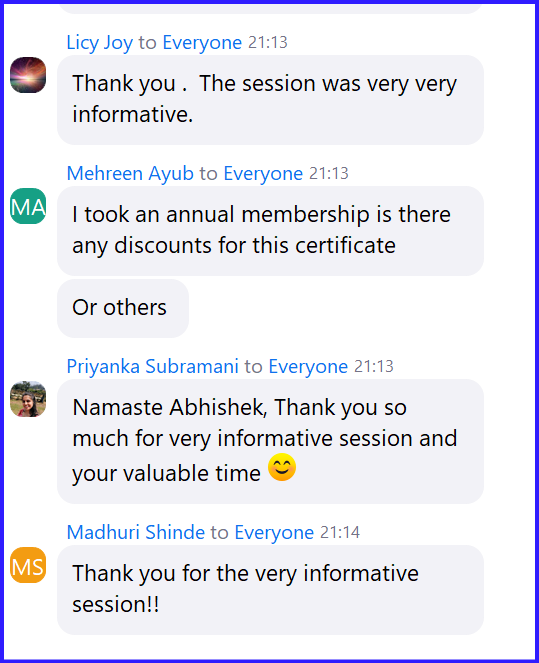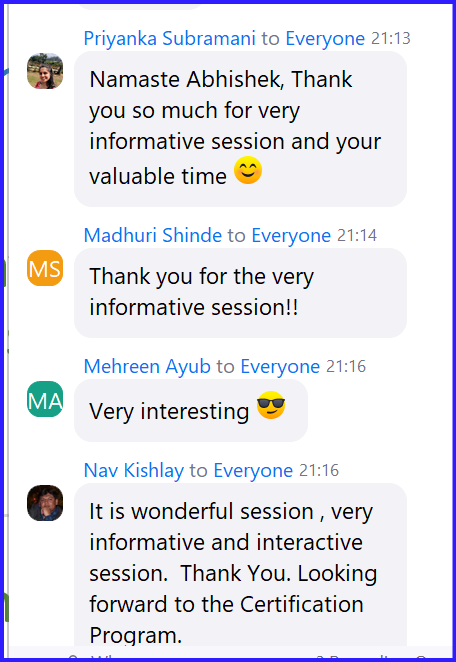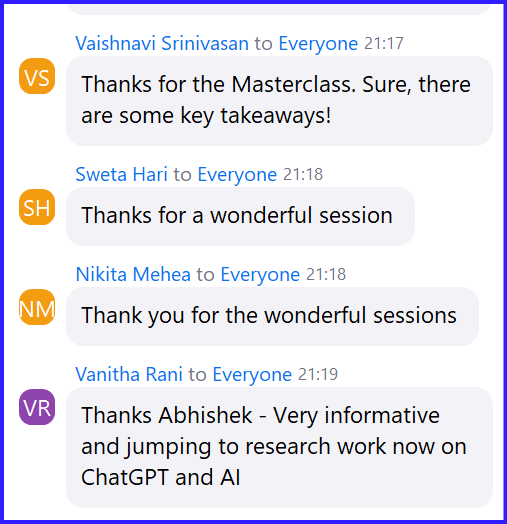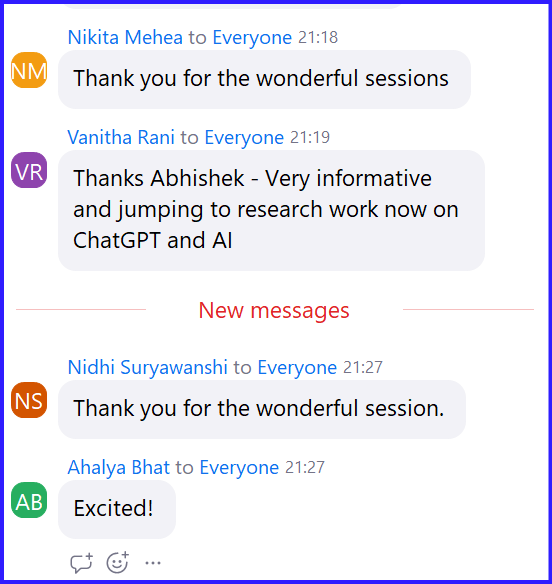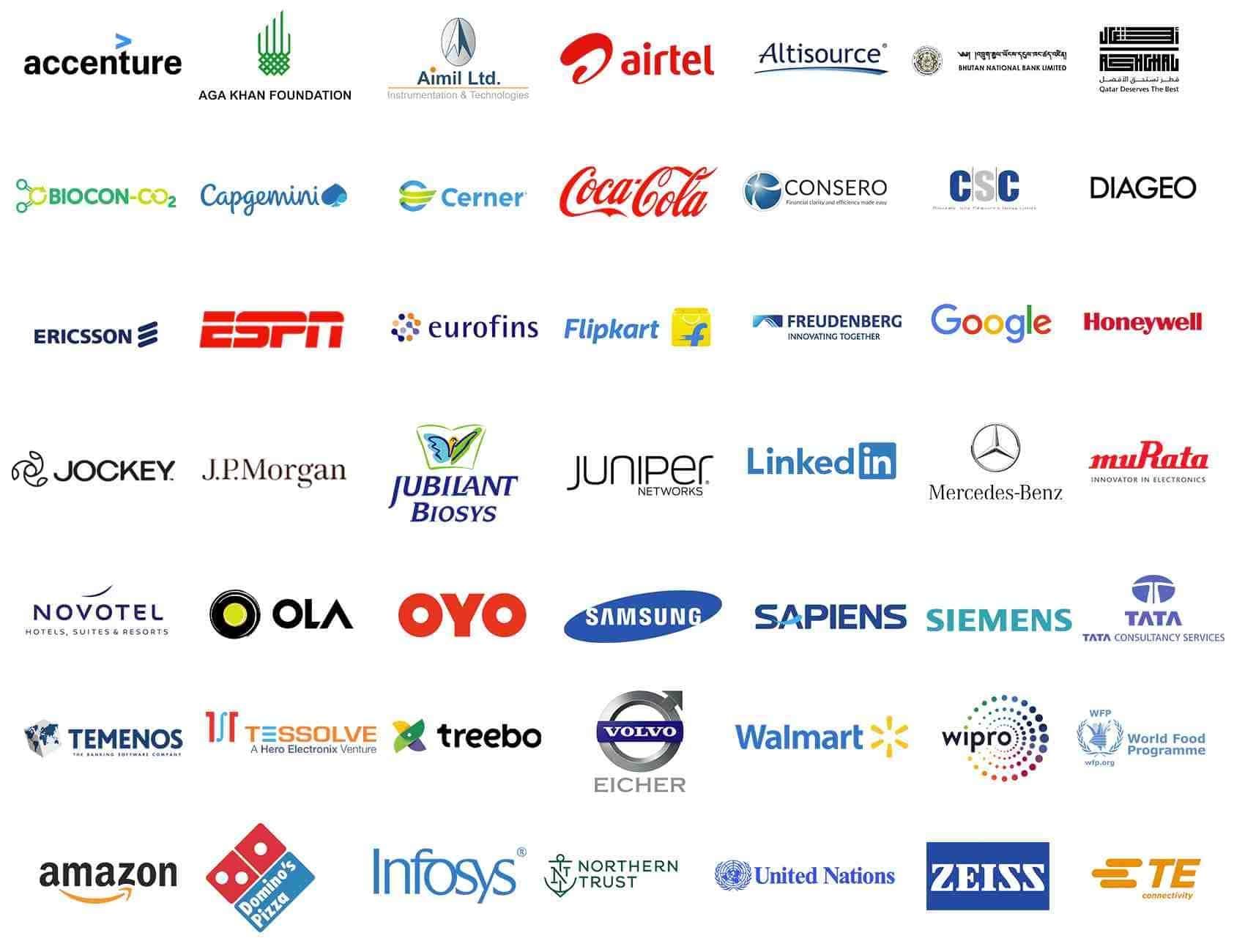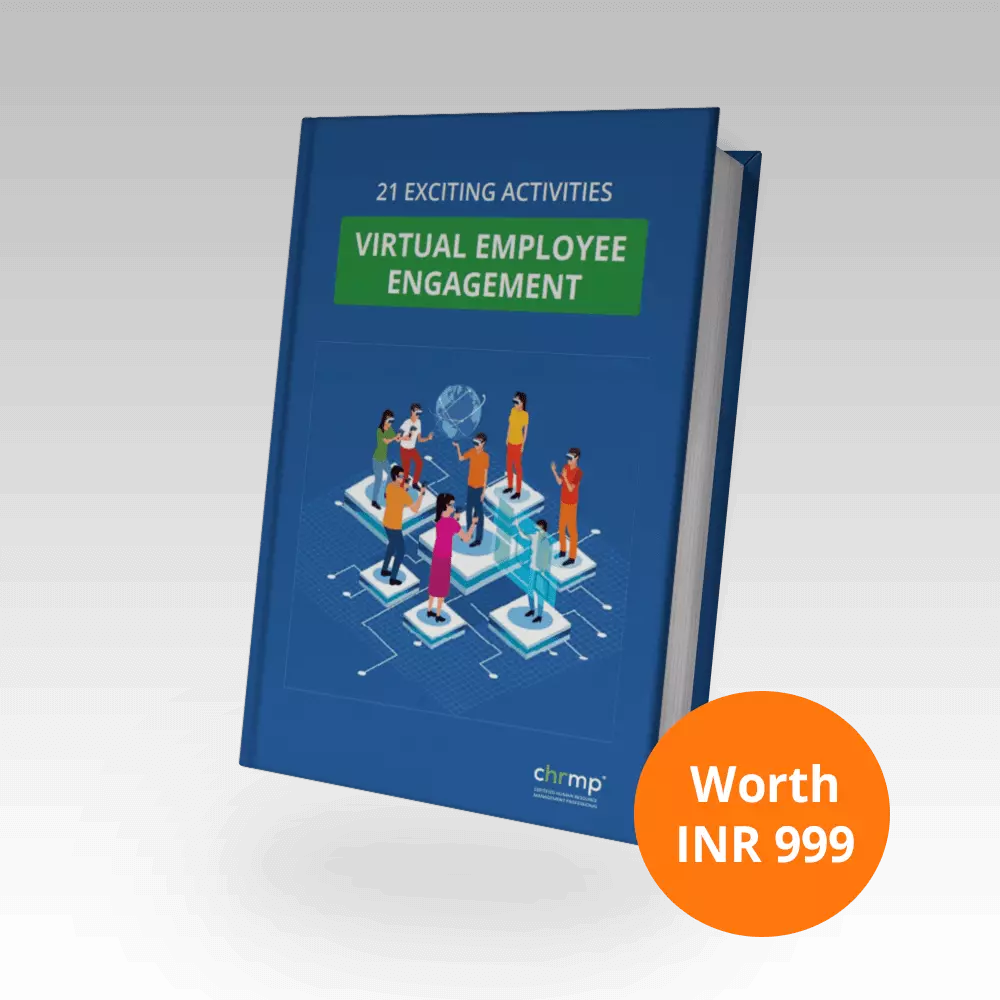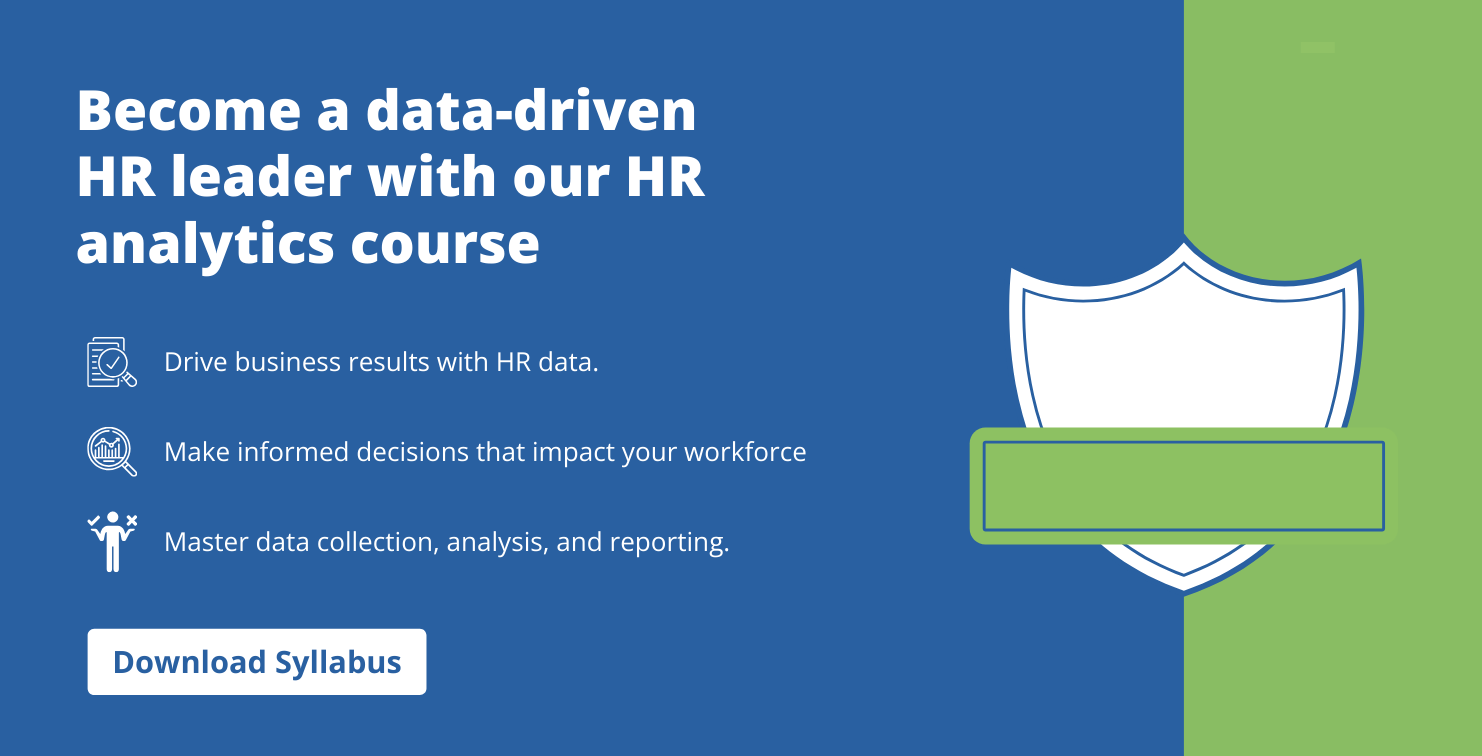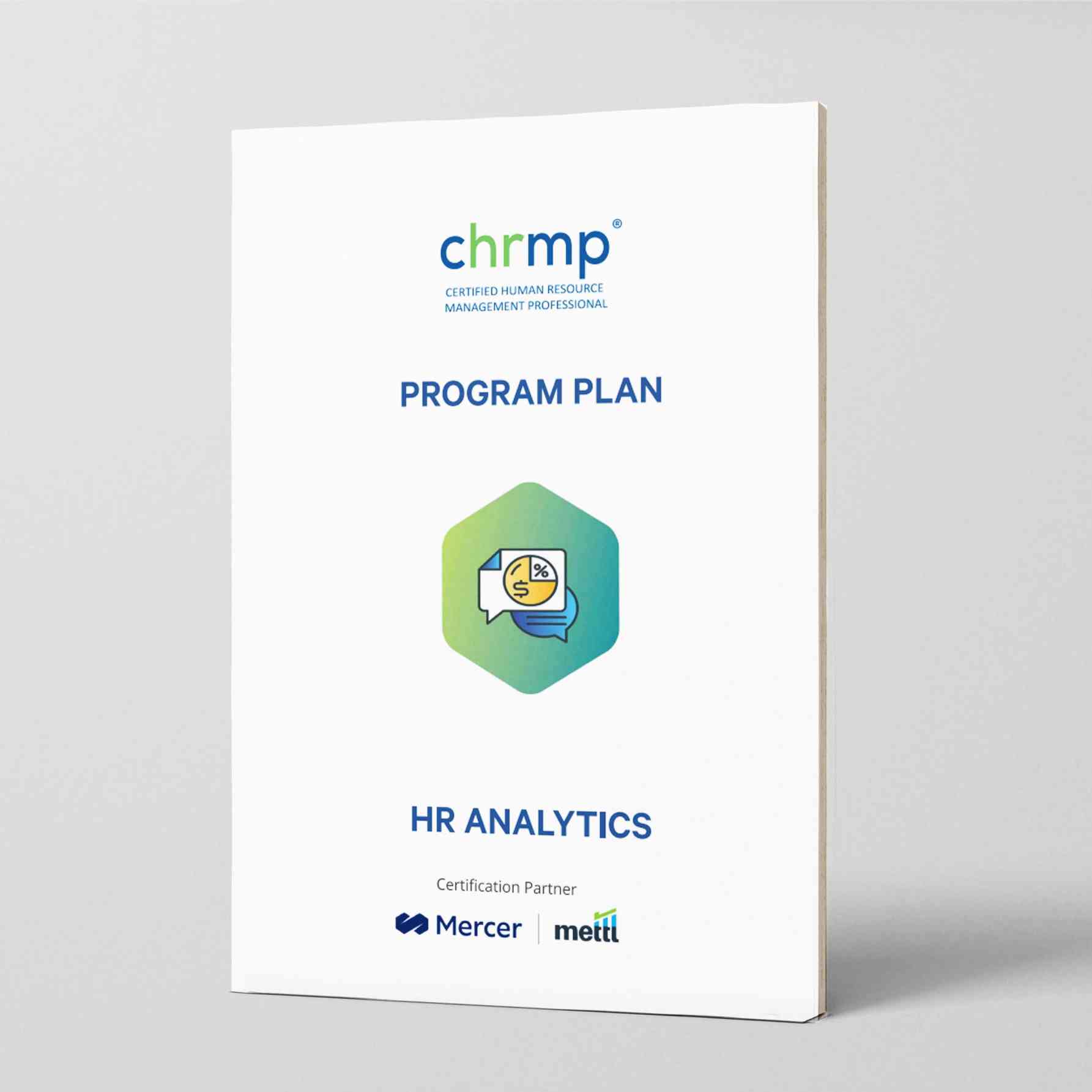A multi-skilled HR professional who handles a variety of HR-related tasks in an organization is called HR Generalist. HR Generalists are employed in various industries, including healthcare, finance, technology, manufacturing, and retail.
The role played by an HR Generalist in an organization’s success is vital. They help ensure that the organization attracts and retains top talent with reasonably low replacement rates, employees are trained and developed to perform their roles effectively, the company’s policies and procedures are adhered to, and that the organization is running regularly on its course of success.
In this blog, we shall explore the world of HR Generalists, their responsibilities, skills.
If you are an HR professional looking to advance your career or an employer seeking to improve your HR function, this blog is for you.
So let’s get started without further ado.
What is an HR Generalist?
An HR Generalist is an HR professional with a broad range of knowledge & skills in all areas of human resources. A wide range of HR duties, like recruitment, employee relations, performance management, training and development, compensation and benefits, compliance, and HR administration, are areas that lie in an HR Generalist’s jurisdiction.
HR Generalists are typically the first point of contact for employees and management when addressing HR-related issues.
Providing guidance, support, and advice to employees and management on HR policies and procedures and ensuring that the organization’s HR practices comply with applicable company and government laws and regulations falls in their area of responsibility and expertise.
Why are they Important?
HR Generalists are essential for managing human capital. These multi-skilled HR professionals carry out a broad range of HR duties, including recruitment, employee relations, performance management, training and development, compensation and benefits, compliance, and HR administration.
By fulfilling these responsibilities, they help ensure that the organization attracts and retains top talent, that employees are trained and developed to perform their roles effectively, and that the company’s policies and procedures are followed.
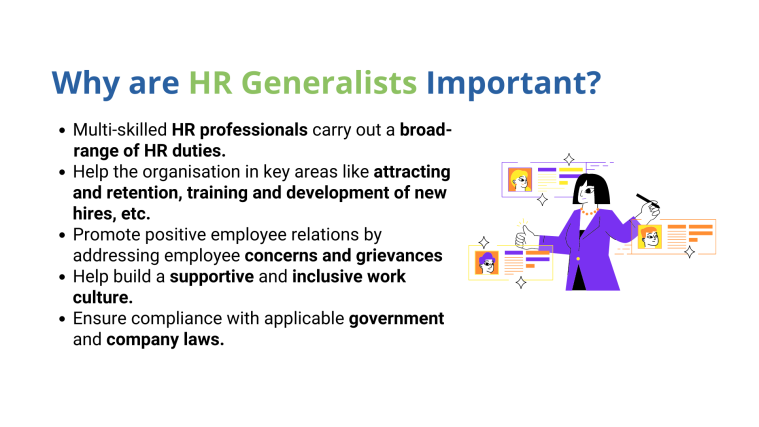
HR Generalists help in promoting positive employee relations by addressing employee concerns and grievances and providing guidance on workplace policies and procedures.
Building an organization’s supportive and inclusive work culture is also an essential duty of HR generalists. They also ensure compliance with applicable government and company laws and regulations related to employment, labor, benefits, compensation, and workplace safety.
Their collaboration with finance, operations teams, and other departments ensures that HR practices are integrated with the organization’s overall goals and objectives.
To summarise, HR Generalists are essential to drive an organization to success. They ensure effective human capital management, promote positive employee relations, ensure compliance with government, company laws and regulations, and align HR practices with organizational values and goals.
Roles and Responsibilities of an HR Generalist
The roles and responsibilities of an HR Generalist can vary depending on the size of the organization, its structure, and its industry.
However, here are some of the most common responsibilities of an HR Generalist:
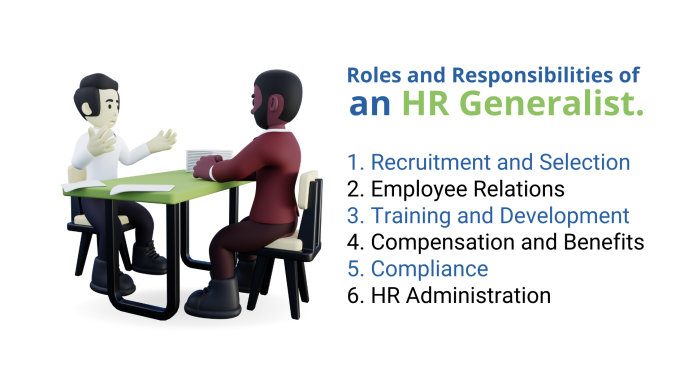
1.Recruitment and Selection:
HR Generalists are responsible for recruitment and selection activities like sourcing, screening, and hiring qualified and aptly skilled candidates for open positions or emergency transitions. They might also develop job descriptions, conduct interviews, and coordinate onboarding activities.
2. Employee Relations:
Managing employee relations, which includes handling grievances, complaints, and conflicts, guiding policies and procedures, and assisting in disciplinary actions, all fall in their area of responsibility
3. Training and Development:
HR Generalists identify training needs, develop training programs, provide training to employees, work with managers to develop performance improvement plans and provide coaching to employees.
4. Compensation and Benefits:
HR Generalists also manage compensation and benefits plans, ensure compliance with relevant government and company laws and regulations, administer employee benefit programs, and conduct salary surveys to ensure the organization’s competitive compensation packages.
5. Compliance:
HR Generalists also ensure compliance with employment laws and regulations, including maintaining employee records, managing affirmative action plans, and ensuring that the organization’s HR policies and practices comply with applicable laws and regulations.
6. HR Administration:
They also manage HR administrative tasks like maintaining employee records, processing payroll and benefits, and driving HR software systems.
To summarise, an HR Generalist is responsible for various HR duties like recruitment, employee relations, training and development, compensation and benefits, compliance, and HR administration.
They play a critical role in ensuring the organization’s human capital is managed effectively and aligned correctly with its overall strategy.
Top 5 Skills Every HR Generalist Must Have
Listed below are the top five skills every HR Generalist should have:
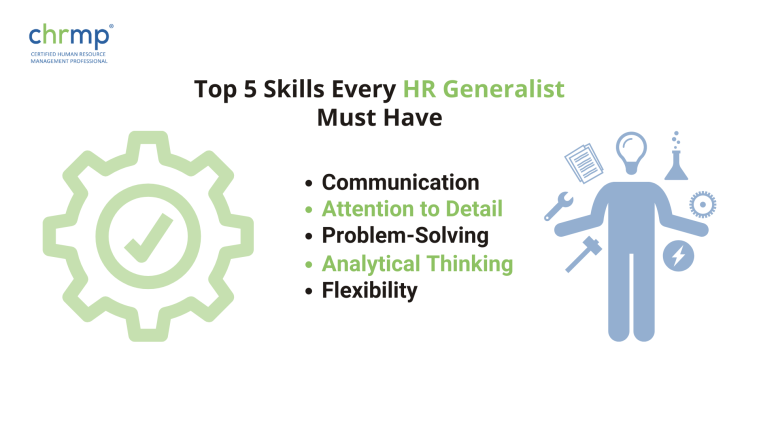
1.Communication:
HR Generalists must communicate effectively with employees, managers, and executives. They must listen actively, provide guidance, and convey information clearly and professionally.
2. Problem-Solving:
Identifying and addressing problems within the organization is a ‘must-have’ for HR Generalists. Developing solutions for issues in the company within a tight deadline is a major skill that every HR generalist must possess.
3. Attention to Detail:
HR Generalists must have a strong eye for detail for ensuring that HR policies and procedures are followed correctly. They must also be able to accurately review and analyze data, contracts, and other HR-related documents.
4. Analytical Thinking:
HR Generalists must be able to analyze data with acute precision and read trends and patterns to make informed decisions about the organization’s HR policies and procedures. They must also be able to think strategically and proactively identify potential problems before they arise.
5. Flexibility:
Adaptation and the ability to navigate change is a must-have traits for these professionals. They must be able to adjust their approach to meet the needs of the organization and its employees, even in rapidly changing business environments.
By gaining these top five skills, these professionals can effectively manage various aspects of human resources, create a positive work environment for employees, and ensure that the organization’s HR policies and procedures align with its goals and values.
How Much Does an HR Generalist Make?
The salary of an HR Generalist varies according to factors such as location, industry, level of experience, and the organization’s size.
According to salary data from PayScale, the median salary for an HR Generalist is approximately $56,000 per year. However, this can range from around $40,000 per year for entry-level positions to over $80,000 per year for those with more experience and in higher-level positions.
These professionals also receive health insurance, retirement plans, and paid time off. Bonuses or profit-sharing based on their performance and the organization’s performance are also stipulated in some companies.
Salary varies depending on the industry type. For example, these professionals in industries such as finance, healthcare, and technology tend to earn higher wages than those in industries such as retail or hospitality.
While the salary of an HR Generalist depends on various factors, they typically earn a competitive salary and have opportunities for growth and advancement in their careers.
These professionals may advance to higher-level positions such as HR Manager, Director of HR, or Vice President of HR. Alternatively, they may specialize in a particular area of HR, such as recruitment or employee relations, and become an HR Specialist.
How to Build Your Career as an HR Generalist
Building a career as a multi-skilled HR professional is no cakewalk. However, there is a typical blueprint that these professionals usually follow throughout their careers.
Here are some steps you can take to build your career as an HR generalist:
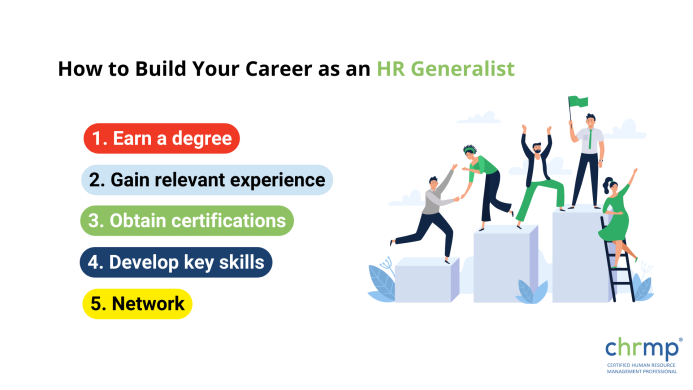
1.Earn a degree:
HR Generalist positions require at least a bachelor’s degree in a related field like human resources, business administration, or psychology. Pursuing a degree program that offers courses in human resources management, labor law, organizational behavior, or compensation and benefits should be considered to carve out a rewarding career as HR Generalist.
2. Gain relevant experience:
Usually, these positions require some level of HR experience. Internships, part-time work, or entry-level HR roles are some opportunities to gain experience in areas such as recruitment, employee relations, training and development, compensation and benefits, and HR administration.
3. Obtain certifications:
Obtaining a professional certification can demonstrate your knowledge and expertise in the field, which carries ‘brownie points.’ CHRMP (Certified Human Resource Management Professional) offers certification courses for a variety of HR functions like compensation and benefits planning, competency mapping, talent acquisition, etc.
4. Develop key skills:
Key skills such as communication, problem-solving, analytical thinking, and an eye for detail are must-have traits for these professionals. Opportunities to develop these skills through coursework, work experience, or volunteer opportunities have to be sought.
5. Network:
Building a professional network helps you learn about job opportunities and connect with other HR professionals. Attending industry events, joining professional organizations, and connecting with others in the field through social media platforms such as LinkedIn helps in building and strengthening th
In summary, to become an HR Generalist, you will typically need to earn a degree, gain relevant experience, obtain certifications, develop key skills, and network with other professionals in the field. By taking these steps, you can position yourself for a successful career in human resources.
HR Generalist vs HR Manager: What’s the Difference?
The main difference between an HR Generalist and an HR Manager lies in their scope of responsibilities and level of authority within an organization’s human resources department.
An HR Generalist is typically responsible for a broad range of HR functions. They handle various aspects of HR operations, such as recruitment and selection, onboarding, employee relations, performance management, compensation and benefits administration, policy development and implementation, employee engagement, and HR compliance. HR Generalists often work in smaller organizations where the HR department is relatively small or where there is no specialized HR staff for each function.
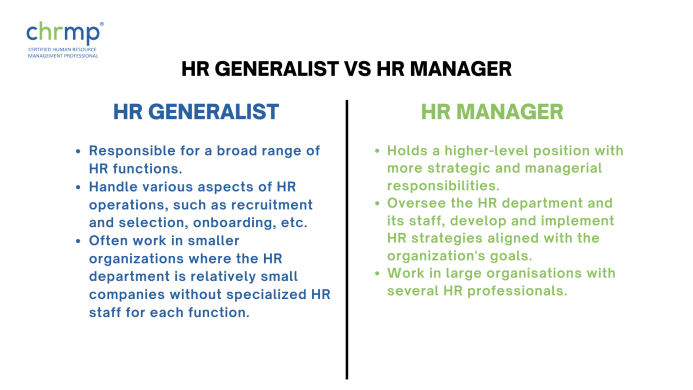
On the other hand, an HR Manager holds a higher-level position with more strategic and managerial responsibilities. They oversee the HR department and its staff, develop and implement HR strategies aligned with the organization’s goals, and provide guidance and support to other HR professionals. HR Managers are involved in decision-making processes related to talent management, organizational development, workforce planning, training and development, and HR policies. They collaborate with senior management to align HR initiatives with the overall business strategy.
In summary, while an HR Generalist has a broader range of operational HR responsibilities, an HR Manager holds a more strategic and managerial role, overseeing the HR department and contributing to the organization’s strategic objectives.
Frequently Asked Questions
1. What is the difference between an HR Generalist and an HR Specialist?
An HR Generalist typically has a broad range of responsibilities and works across different areas of HR, such as recruitment, employee relations, and compliance. An HR Specialist, on the other hand, focuses on a specific area of HR, such as compensation and benefits or training and development.
2. What skills are important for an HR Generalist?
Important skills for an HR Generalist include communication, problem-solving, attention to detail, analytical thinking, and the ability to manage multiple tasks and priorities.
3. What education is required to become an HR Generalist?
Most positions require at least a bachelor’s degree in a related field, such as human resources, business administration, or psychology.
4. What industries employ HR Generalists?
HR Generalists are employed in a wide range of industries, including healthcare, finance, technology, manufacturing, and retail.
5. What is the career path for an HR Generalist?
They may advance to higher-level positions such as HR Manager, Director of HR, or Vice President of HR. Alternatively, they may specialize in a particular area of HR, such as recruitment or employee relations, and become an HR Specialist.
Conclusion
To conclude, HR Generalists play a very important role in organizations by managing various aspects of human resources, from recruitment and employee relations to compliance and benefits administration.
They are responsible for ensuring that the organization’s HR policies and procedures align with its goals and values while also creating a positive work environment for employees.
These professionals need to have a variety of skills, such as communication, problem-solving, and analytical thinking, and they typically hold at least a bachelor’s degree in a related field.
With experience and further education, these professionals have the opportunity to advance their careers and specialize in specific areas of HR.
As businesses continue to navigate an ever-changing workforce and competitive landscape, these professionals will stay a vital part of any organization’s success drive.



